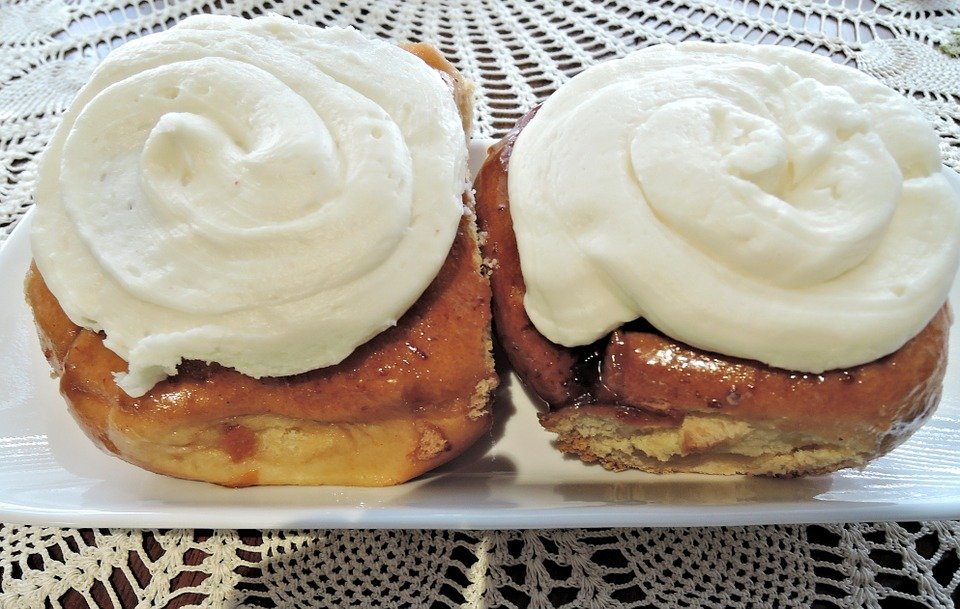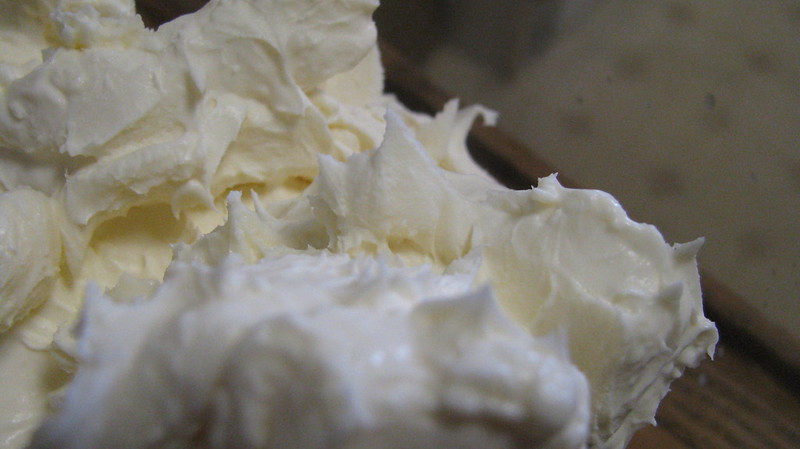Difference Between Cream Cheese and Mascarpone
Table of Contents
The key difference between cream cheese and mascarpone is that cream cheese contains about 33% of milk fat and 55% of moisture, whereas mascarpone is made from whole cream.
Cream cheese has a PH range of 4.4 to 4.9. Both cream cheese and mascarpone should be consumed fresh since they have short shelf lives. After adding cream and whipping it well to make it soft and light, cream cheese can be used as a substitute for mascarpone. Moreover, French creme fraiche or English clotted cream can be used as substitutes for mascarpone.
CONTENTS
1. Overview and Key Difference
2. What is Cream Cheese
3. What is Mascarpone
4. Cream Cheese vs Mascarpone in Tabular Form
6. Summary
What is Cream Cheese?
Cream cheese originated in America in 1873. A dairyman named William A. Lawrance was the first to mass-produce this. He discovered this by accident while trying to reproduce a French cheese. It is made from milk and cream. Lactic acid bacteria is added to pasteurized milk to make cream cheese, and it helps in coagulation. The cream is added only to get a better texture.
Cream cheese is soft and mild in taste; it also has a saltier taste. Cream cheese has a thick consistency that is even thicker than butter. In industrial production, stabilizers such as carob bean gum and carrageenan are usually added to prevent water from separating from the cheese. This is meant to be consumed fresh, unlike aged cheese, which has a longer shelf life and is not naturally matured. It is also possible to make cream cheese at home.

Most people use cream cheese as a dip for potato chips, side dishes for sushi rolls and mashed potatoes and also in salads. It is used in fillings in bagels and as the main ingredient in the filling of Crab Rangoon, which is an appetizer served in American Chinese restaurants. It can be used as a spread for crackers and bread by mixing with other ingredients such as pepper and yoghurt. It is also used in making cookies or cheesecake by mixing with butter. This mixture can also be used as frosting for cakes. Other than these, this is used to thicken sauces and make them creamy.
What is Mascarpone?
Mascarpone originated in Italy in the late 16th or early 17th century. The name ‘mascarpone’ is believed to have been derived from ‘mascarpia’, which is a local word for ricotta. However, unlike ricotta, which is made from milk, mascarpone is made from whole fat cream. Therefore, mascarpone has a high butter content, around 75%. Generally, it has 50% fat, 5% carbohydrates and 3% protein. When lemon juice and vinegar or lactic acid are added to the cream, the coagulated mass turns to mascarpone. The citric acid or tartaric acid that is added to the cream thickens it. It can be recognized as a soft Italian acid-set cream cheese that is also very light and free from any lumps. Mascarpone has a velvety sensation, and it is rich in flavour. It is milky-white in colour and a special dish in the region of Lombardy where it was originated.

Mascarpone is one of the main ingredients in tiramisu, which is a modern Italian dessert. It can also be used in pies or sweet tarts. In addition, it can also be used in pasta recipes such as lasagna, rigatoni and macaroni. For those who find it difficult to find mascarpone, French creme fraiche or English clotted cream can be used as substitutes.
What is the Difference Between Cream Cheese and Mascarpone?
The key difference between cream cheese and mascarpone is that cream cheese contains about 33% of milk fat and 55% of moisture, while mascarpone is made from the whole cream.
The following tabulation compiles the differences between cream cheese and mascarpone.
Summary – Cream Cheese vs Mascarpone
Cream cheese is made of milk, cream and stabilizers called carob bean gum and carrageenan. It contains about 33% of milk fat and 55% of moisture. It has a thick consistency and a salty and creamy taste. It is used as dips, side dishes, spreads and cake frostings. Mascarpone is made of whole cream and citric or acetic acid. It has 50% of fat, 5% of carbohydrates and 3% of protein content. It has a smooth and velvety consistency and has a sweet and milky flavour. It is used in making pasta, macaroni, pies and tiramisu.
Reference:
1. “Cream Cheese.” Wikipedia, Wikimedia Foundation, 23 July 2021.
2. “Mascarpone.” Wikipedia, Wikimedia Foundation, 18 July 2021.
Image Courtesy:
1. “Cream Cheese Topping Yeast Bread Cinnamon Bun” (CC0) via Max Pixel
2. “Panettone With Mascarpone” By David Erickson (CC BY-NC 2.0) via Flickr
ncG1vNJzZmivp6x7pbXFn5yrnZ6YsqOx07CcnqZemLyue8OinZ%2Bdopq7pLGMm5ytr5Wau26v0Z6YpmWTnbKmv8RmmKecXaKutK%2FAq6eoppVk